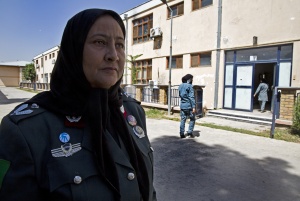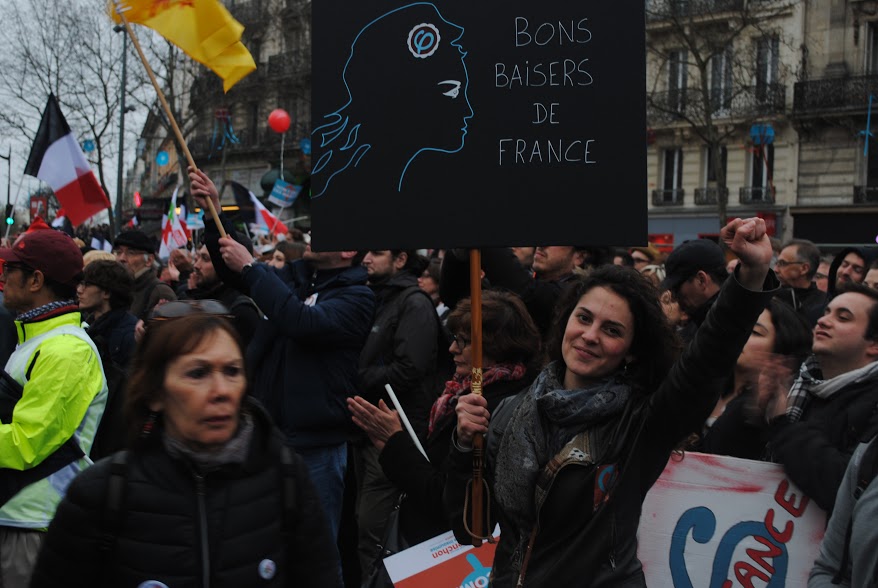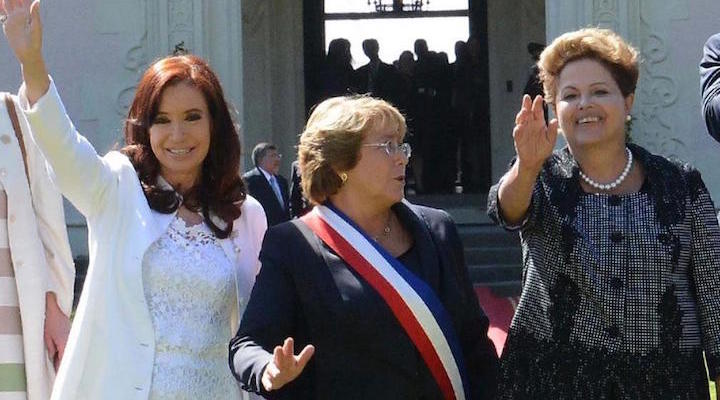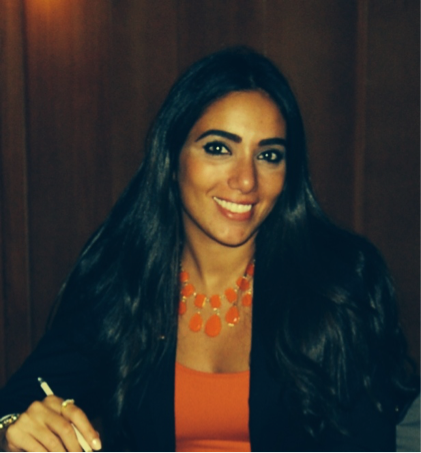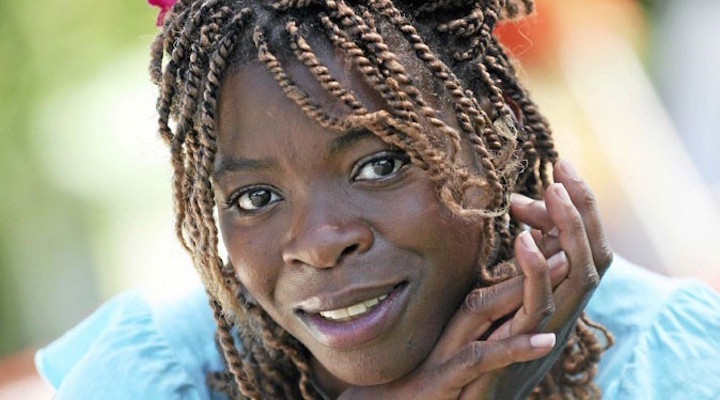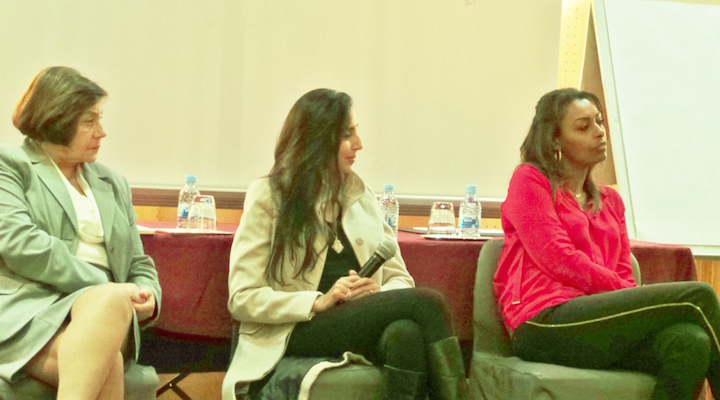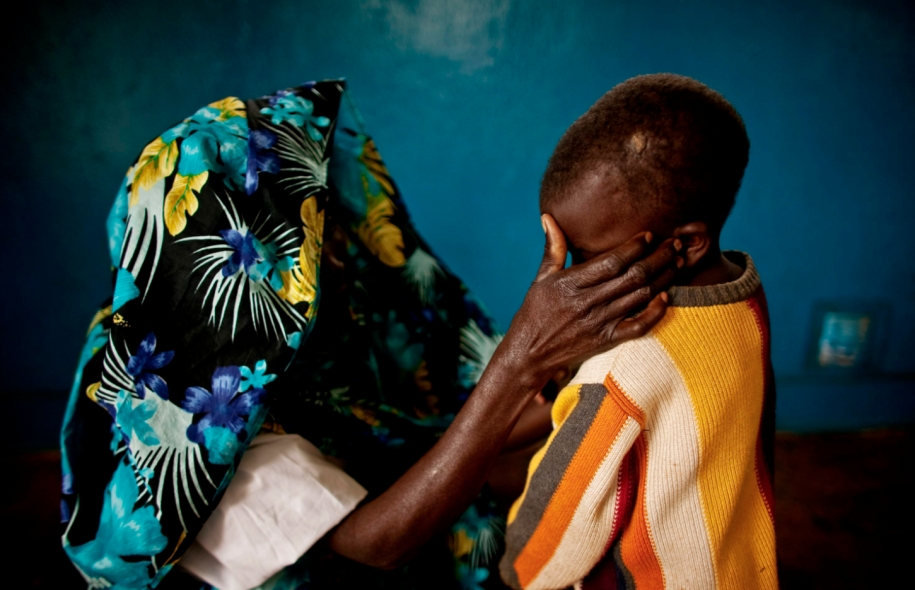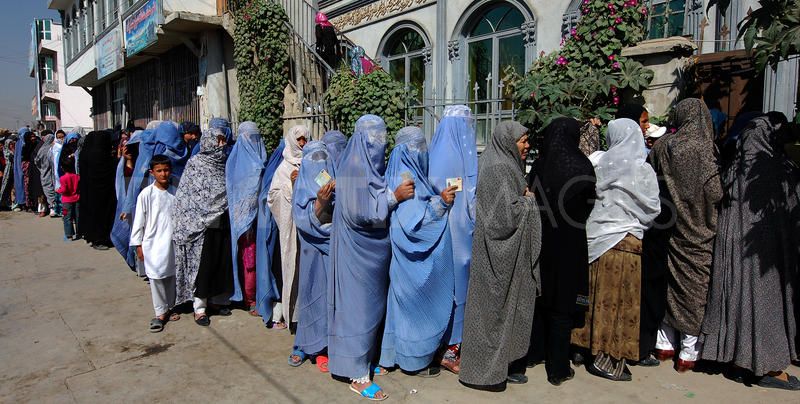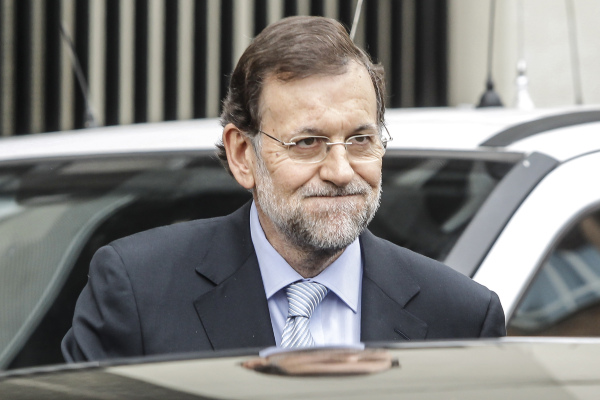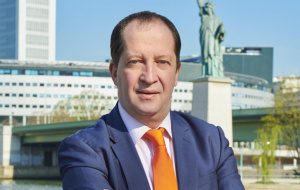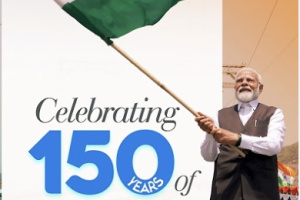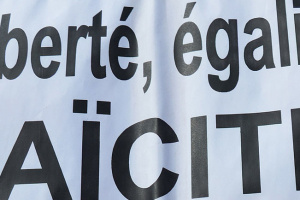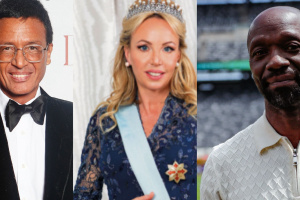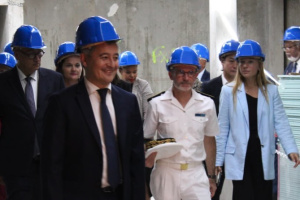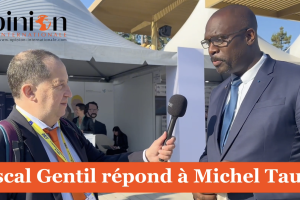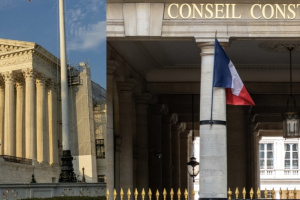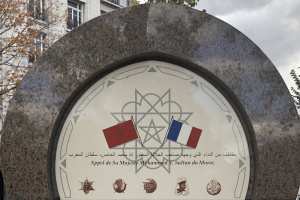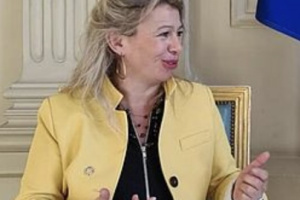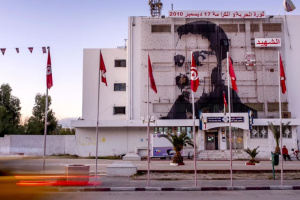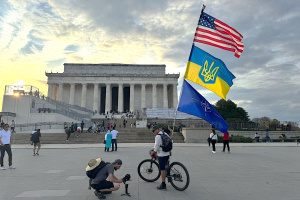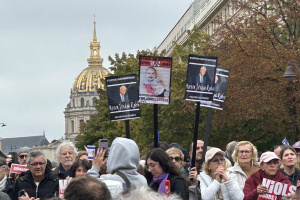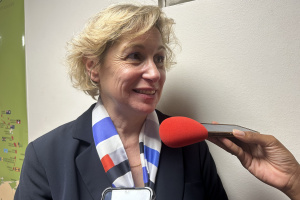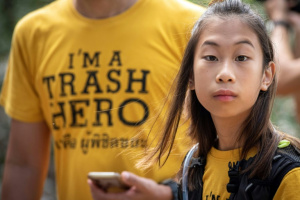Elizabeth Cameron, conseillère en matière de politique et lobbying d’Oxfam, explique dans cette interview à Opinion Internationale que les femmes policières sont encore trop peu nombreuses : seulement 1551 en 2013, alors que le gouvernement afghan espérait en avoir 5000. Bien qu’il s’agisse d’un réel progrès (elles n’étaient que 180 en 2005), on est encore loin d’un nombre satisfaisant pour permettre aux femmes de porter plainte pour les crimes qu’elles subissent – d’autant plus que les difficultés sont plus grandes dans les zones rurales que les villes. Mais être policière est encore extrêmement mal vu dans la société afghane, et les femmes dans la police sont souvent victimes de violences (notamment sexuelles) de la part de leurs collègues masculins. Aussi, l’aspect financier représente la raison principale aujourd’hui pour les femmes pour entrer dans la police. Le gouvernement afghan doit donc prendre les mesures nécessaires pour offrir aux femmes dans la police un environnement sûr où travailler, qui prenne en compte leurs besoins particuliers (des salles pour se reposer, se changer de vêtements, etc.). Il faut aussi, demande Oxfam, sensibiliser les jeunes sur la question et défaire le métier de sa mauvaise réputation, afin d’encourager les filles à entrer dans la police et l’armée. Les institutions internationales ont ici un rôle à jouer, en conditionnant l’aide financière à l’Afghanistan au recrutement de davantage de femmes. Une partie du Law and Order Trust Fund for Afghanistan devrait notamment être réservé à favoriser l’entrée des femmes dans la police et à leur donner une formation spécifique sur les violences de genre.
In the lead-up to the withdrawal of international troops from Afghanistan in 2014, the international community is starting to assess to which extent the military intervention helped the population. As part of this momentum, the human rights NGO Oxfam published a report in September focusing on the female police: ‘Women and the Afghan Police – Why a law enforcement agency that respects and protects females is crucial for progress’.
Elizabeth Cameron, Oxfam’s Policy and Advocacy Advisor, has shared the report’s findings and her views on the situation of women in Afghanistan with Opinion Internationale.
OI: Why are policewomen crucial for women’s rights in Afghanistan? Do they not risk applying the same pattern of victim blaming as some policemen?
Elizabeth Cameron: I think it is difficult to generalise, but in the context of Afghanistan it is very difficult for women who are the victims of violence to report crimes to policemen. Within the cultural constraints of Afghanistan it is much easier for them to report to policewomen. That is not to say that policewomen may not judge or may not behave in inappropriate ways to the victim – but that would need a more anthropological study. In Afghanistan, they have developed Family Response Units, called FRUs. There are 184 of them across the country and they are made up of three-people teams, often based within police stations, where people, women in particular, can go and report these crimes. They are supposed to have specific training – psychological, psychosocial training – to be able to assist victims of violence. The idea was that female police would also be able to play a key role within these teams. However we have not seen the number of policewomen belonging to FRU that we would have liked. Only 23 policewomen in Afghanistan belong to these FRU; we would like to see the number obviously increased, so that would provide a specialised role for female police. But in order to be able to deal with victims of violence they need specific training, which is not really being provided to the extent we would like to see at the moment. Now, with that training, they will obviously be able to handle victims of violence in a much better, professional way.
Who could provide this specific training?
There are a lot of different organisations providing training within Afghanistan. Technically it is the Ministry of Interior that is responsible, but there is also the European Union Police Mission in Afghanistan (the EUPOL), which is providing a lot of training and mentoring at senior level, on a one-to-one basis. The United Nations is also involved in training – UNAMA (UN Assistance Mission in Afghanistan), UNDP (UN Development Programme), are training and supporting policewomen.
What factors prevent women from wanting to become policewomen?
We take a parallel approach: on the one hand we recognise that Afghan female police face a huge number of challenges – discrimination and violence within their job –, but at the same time there is this broader need in Afghanistan to have more female police. A recent survey shows that 87% of Afghan women experience some form of violence, so we need female police in order for them to be able to report crimes against them. Since it is absolutely risky for them, we are encouraging the Ministry of Interior to take the steps they need to make the conditions safer for policewomen. That includes for example having separate changing facilities: because women are too afraid to wear their uniforms to go to work, they need somewhere to change when they arrive. That also includes separate places to rest and to eat, and perhaps that means an extra facility for childcare. We just ask to have the infrastructure ready to support policewomen so that they are not exposed to harassment from colleagues essentially.
Also, there is a real stigma attached to be a policewoman. They are often seen as prostitutes and the role is not respected in this sense. But the UN has done a survey where they actually see this changing, where communities are becoming more accepting to women and the roles they play. Oxfam tries to work with local partners to raise awareness and change these attitudes. And I think that is where we are going to make a difference, in terms of changing attitudes, and encouraging a broader group of women to apply to the police, which will eventually make all female in Afghanistan safer.
What motivation do women have to enter the police?
At the moment I think the financial gains are a real factor for many women joining the police. This is one of the issues that we have, is that we need to make sure that we attract the right women to the police force, with the right education and the right skills. At the moment it is such an undesirable job, firstly because of the violence they face, and secondly because of the stigma attached to it within communities. This means that the sort of the women joining the police are perhaps not the ones you would choose to recruit if you had a much broader pool of applicants. Moreover, for women who join from the provinces, who are perhaps widowed, who perhaps have no other means to support their children, it is a financial incentive – rather than a sort of desire to serve their communities, which is slightly more what we have in urban centres, in Kabul, in Mazar-i-Sharif, in Heart, where things are slightly more liberal.
Also, after training many policewomen are relegated to just performing administrative tasks or making tea for example, and they absolutely have to be doing more active policing. Indeed, this can then demonstrate to their communities the value of what they are doing and that they are culturally needed, to take part in house searches or to support victims of violence for instance; that would then start to attract different calibres of candidates.
Would implementing quotas be an effective way to increase women’s participation in the police force?
Absolutely. Afghanistan has used quotas for female MPs. But there are pros and cons about it: obviously it does have a good representation of women, but very often these women are perhaps not independent or answer to the men. So it is not accurate to say that it is a genuine reflection of female autonomy. Within the police, they have set targets but they keep failing to meet them. By the end of 2014, they wanted to have 5000 female police in place; at the moment, they only have 1551. That has grown considerably since 2005 when they were only 180 though. But it is very difficult, because of the cultural constraints in Afghanistan and the reputation female police have, to recruit the numbers that they need. The Ministry of Interior is now talking about a new target, having 10% representation by 2024; it is a very nice target, I doubt it will be met. In America for example the female police rate is only 11%, and they have had much longer to recruit and address these issues!
So I think it is good to have targets, and certainly at Oxfam, one of our recommendations in the report, is that policewomen be deployed in groups no less than five to district centres, so that they form a critical mass. Being groups of five policewomen can help to promote the issues that they face themselves within the police force, so they feel safer, and also so that the communities can see policewomen more visibly working in their communities.
What about some financial incentive to ensure that the targets are met?
Absolutely. Last year in July we had the Tokyo conference on aid for Afghanistan. This set out a Mutual Accountability Framework (TMAF). It is based on the conditionality of aid, where the Afghan government has to meet 13 priority areas, and the security sector funding is one of the areas of conditionality. What we could have for example is the international community prioritising this issue. First, see some of the funding conditional on the Afghan government doing more to recruit women into the police and into the army – but obviously we are focusing more on the police. And also within the international community itself, with the Law and Order Trust Fund for Afghanistan (LOTFA): different countries, including Germany, the US and the UK, give money into this pool fund, which is administered by UNDP, and that is what is used to pay the salaries of police and all the mechanisms to fund the institution. At Oxfam we would like to see LOTFA prioritising female police, so having some of the funding ring-fenced for female police. But different countries have a different approach: the UK for example does not ring-fence any of its funding for female police, whereas the Netherlands does. Since the current LOTFA fund ends at the end of December, in the next two months they are developing what the new fund will be. It will be more of a holistic approach, rather than just paying the salaries of police. And we would like to see female police prioritised in the reforms that are being made at the moment.
Do you think the international military intervention and twelve-year presence in Afghanistan has helped women to access jobs?
When the Taliban came to power, all the female police had to stop working, as they did in other areas. Since the international intervention, there have been a number of gains for women and women’s work in public life. I think 20% of all government employees are women now, so that is a huge step in the last twelve years, and that goes for women in all areas of public life. But the gains are very uneven: in rural parts of the country, women are still subject to different cultural expectations, where it is perhaps not appropriate for them to leave the house very often, to work in public for example, and to walk anywhere without a male family member. But there have been huge gains. That has been achieved not just by the military but also by development, by aid projects. The training missions (like NATO, which does train the army and the police) have made it an entire part of their strategy to have a gender approach, to include women and to provide opportunities for including women. The UK for example is going to be running the Afghan army officer-training academy –which started this autumn I think – and they are going to have 150 female recruits [90 women according to the UK government website]. Structurally I think the international community and the military have made opportunities available to women, but because of the cultural traditions it has been difficult to encourage women to join. But the opportunities are there, and at Oxfam we are worried that in 2014, as the troops withdraw, as we have peace negotiations, some of the gains for women might be traded away. And we all, particularly with the police, the international community and the Afghan government, need to be doing more to recruit, train and retain policewomen.






